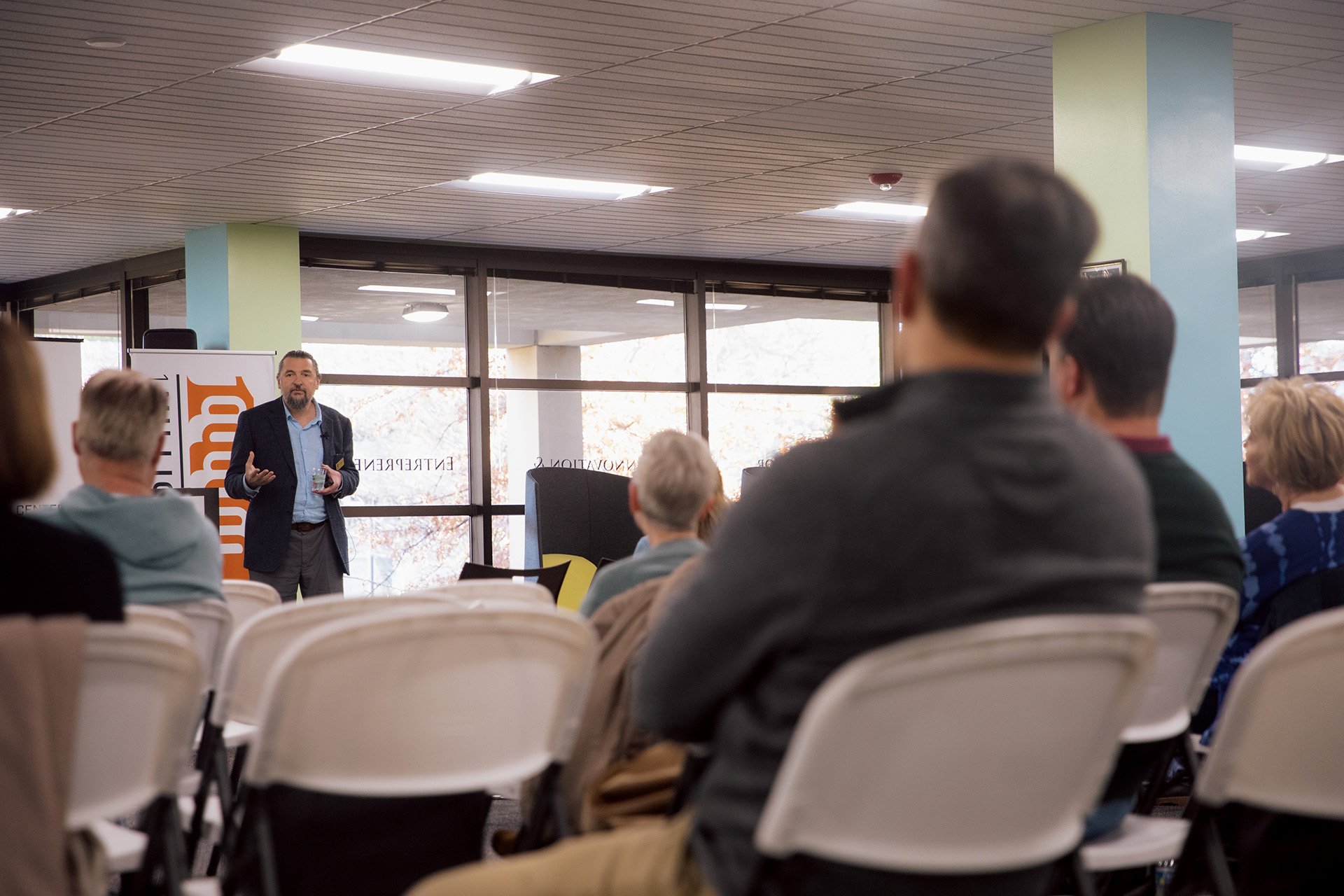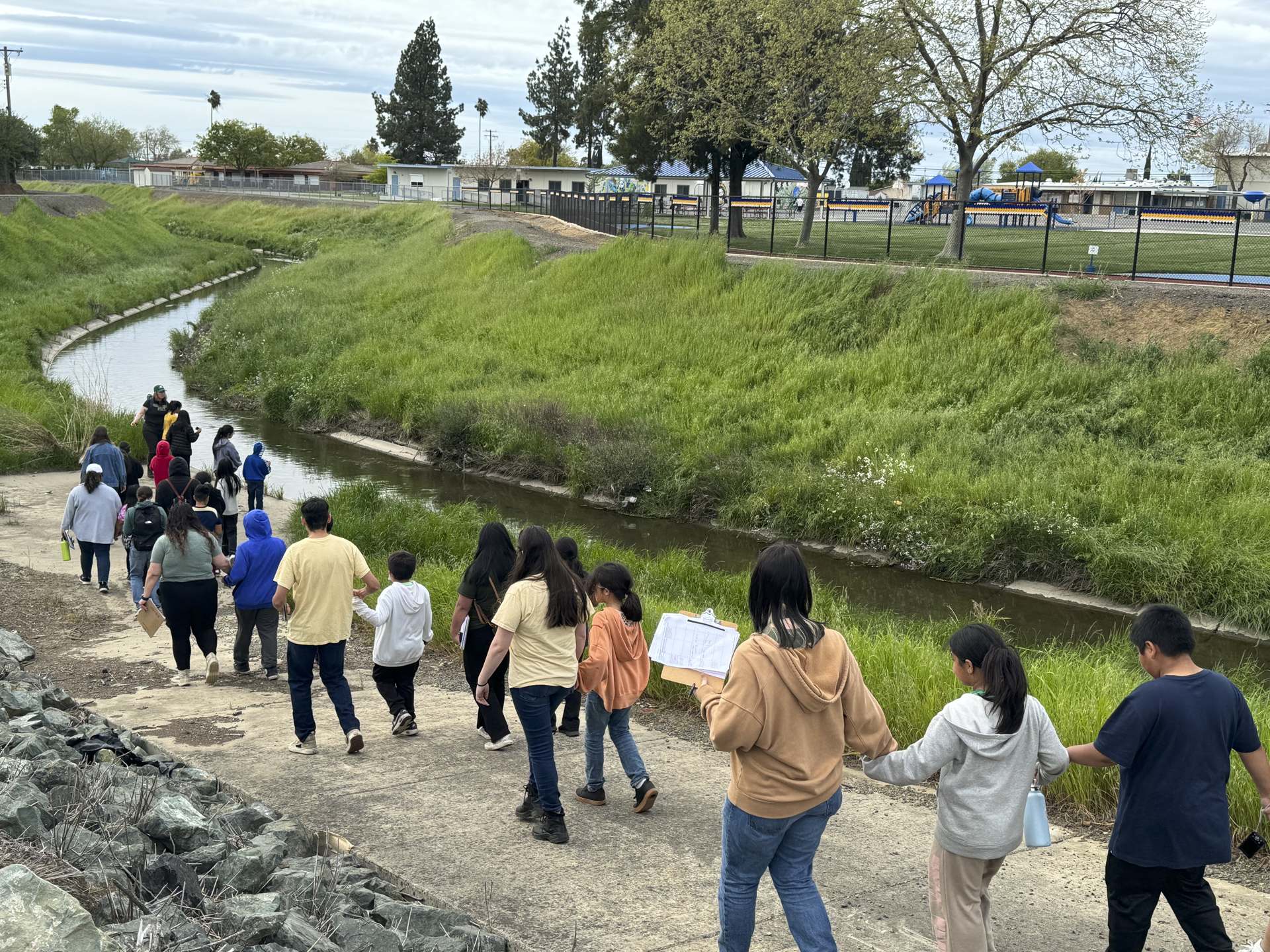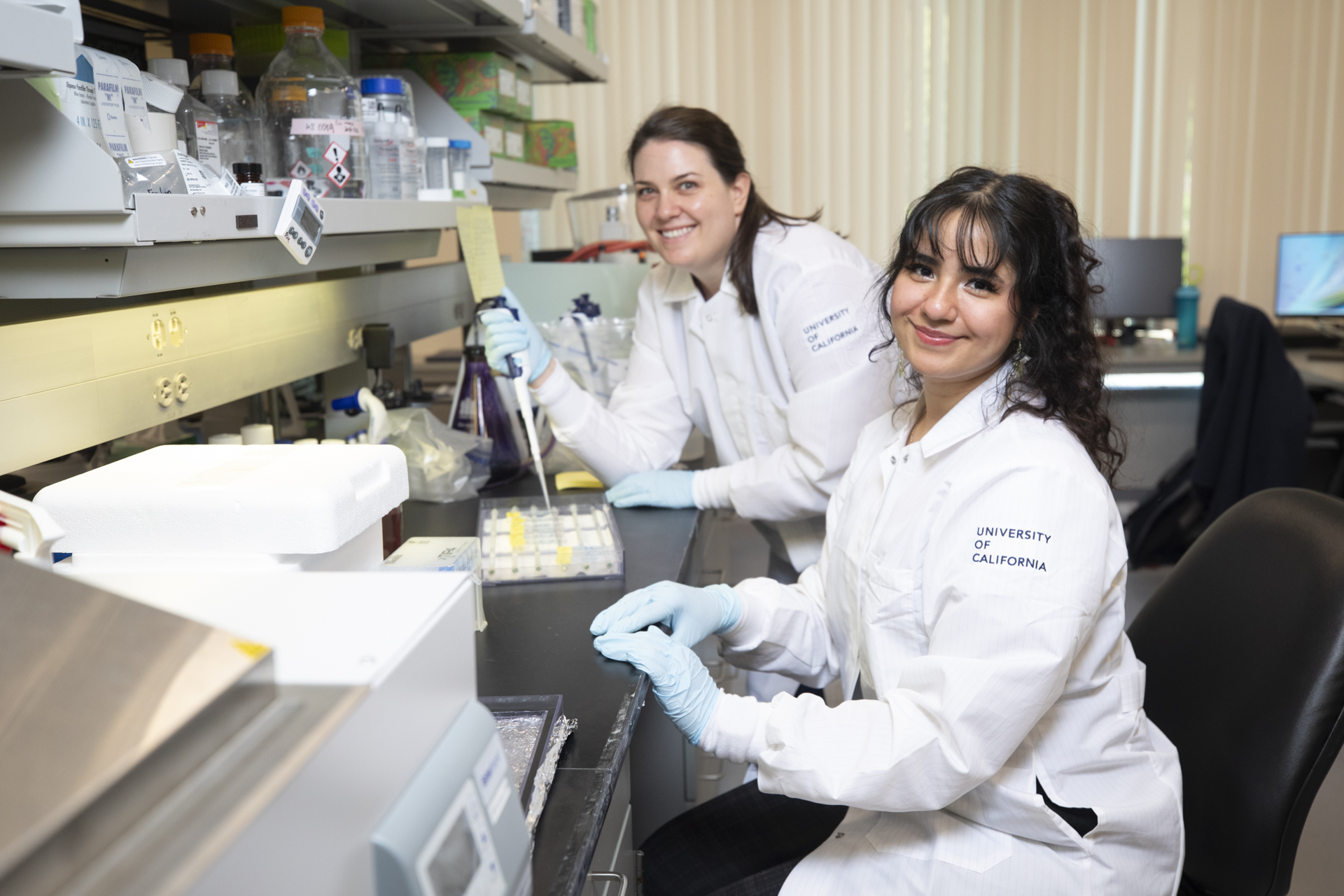Story Content
After 24 years of studying cichlids, Professor Ron Coleman is still learning about that fish's parenting best practices
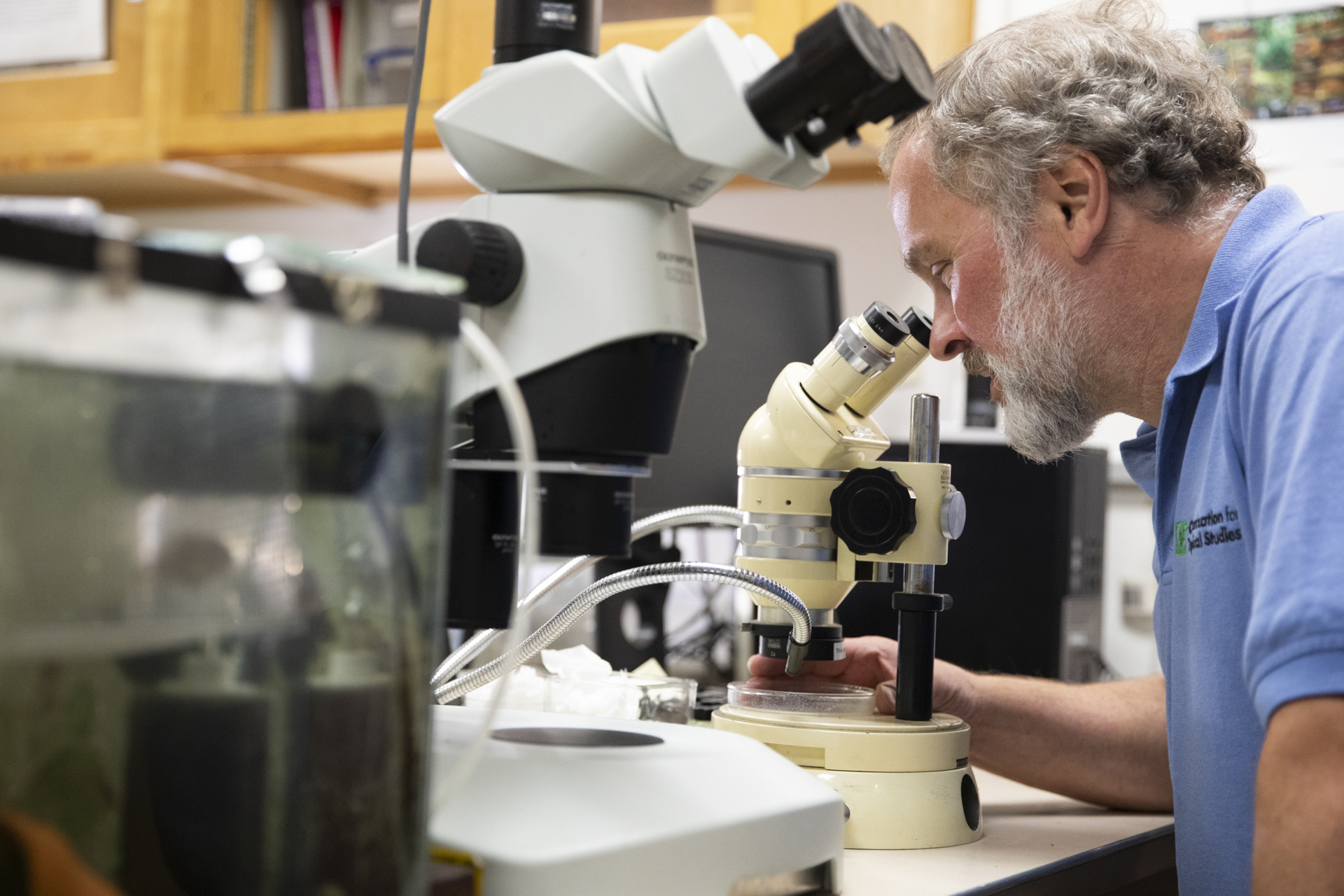
October 23, 2024
It all started with the Convict cichlids.
The small striped fish, native of Central America, captured Sac State Biology Professor Ron Coleman’s attention in a laboratory at the University of Toronto in 1993 while he was pursuing a doctorate in Zoology.
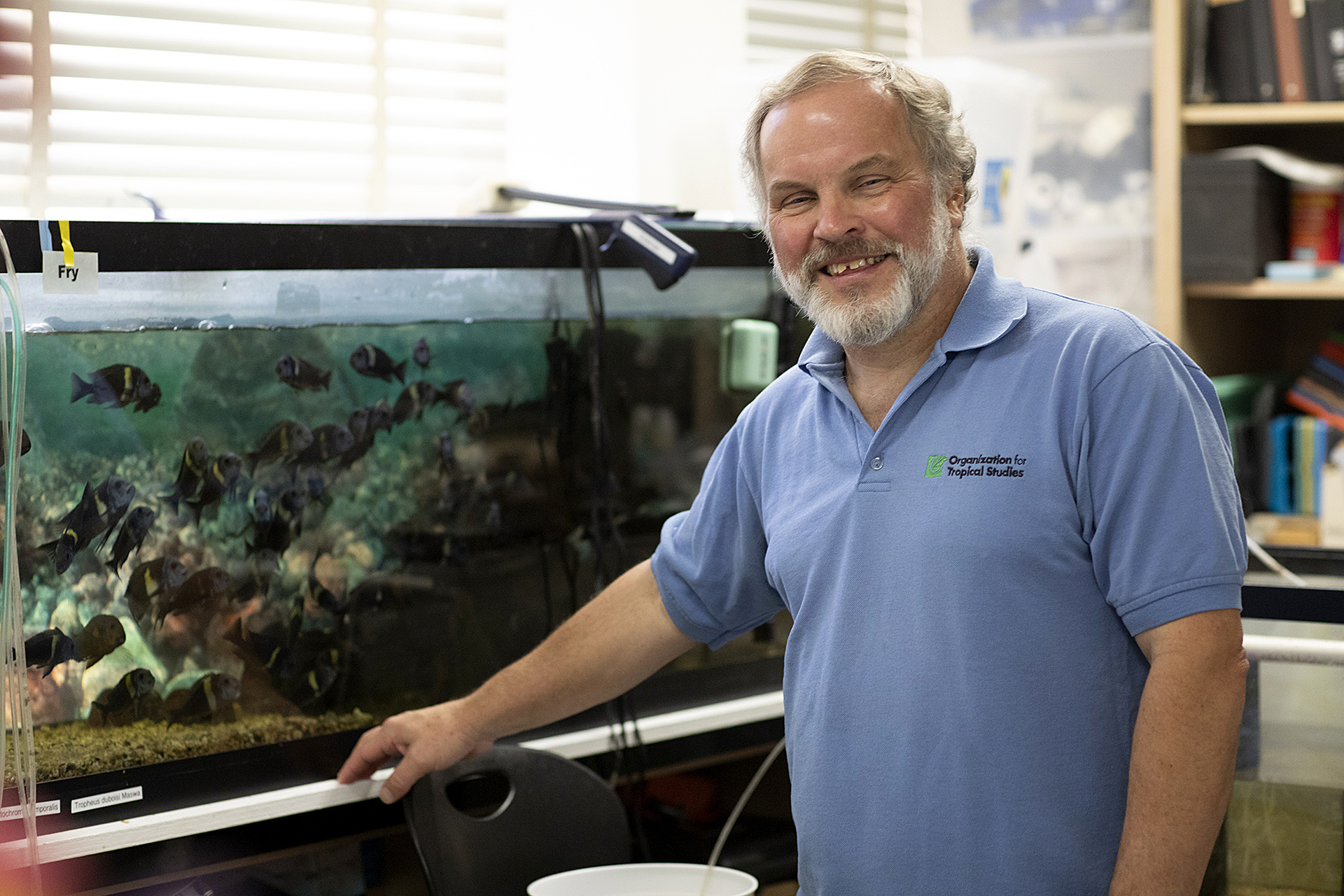
“The Convicts pulled me in,” Coleman said.
Because of their breeding habits and methods for caring for their young, they were perfect subjects for studying fish parental behavior, which would be the subject of Coleman’s doctoral thesis.
Today, Convict cichlids are among dozens of fish species that Coleman and his students research inside his Humboldt Hall lab.
For his studies on fish parenting, Coleman recently received Sac State’s Senior Faculty Award, bestowed by the Offices of Research, Innovation, and Economic Development (ORIED). Coleman’s work, which takes him and his students to Costa Rica annually to study cichlids in the wild, has attracted national attention. His Sac State lab is unique among universities across the country.
“Different fish parent differently,” Coleman said during an interview amid 170 bubbling tanks holding thousands of colorful fish. “We are constantly learning new things.”
Some cichlid species carry their eggs and babies inside their mouths while they develop. Some lay their eggs on rocks. Others are “shell dwellers,” monitoring their young inside a protective cave of discarded exoskeletons.
Coleman and his students study courting patterns, territorial battles and the many ways that fish raise and protect their young.
Typically, both parents “work together to take care of their kids,” he said. “In general, they’re fabulous parents, these cichlids.”
Coleman initially planned to pursue a different research direction. He was interested in studying wildebeest in East Africa. Then, as an undergraduate student, he took a job at the Vancouver Aquarium in British Columbia.
“The more time I spent at the aquarium, the more I became intrigued with fishes,” he said.
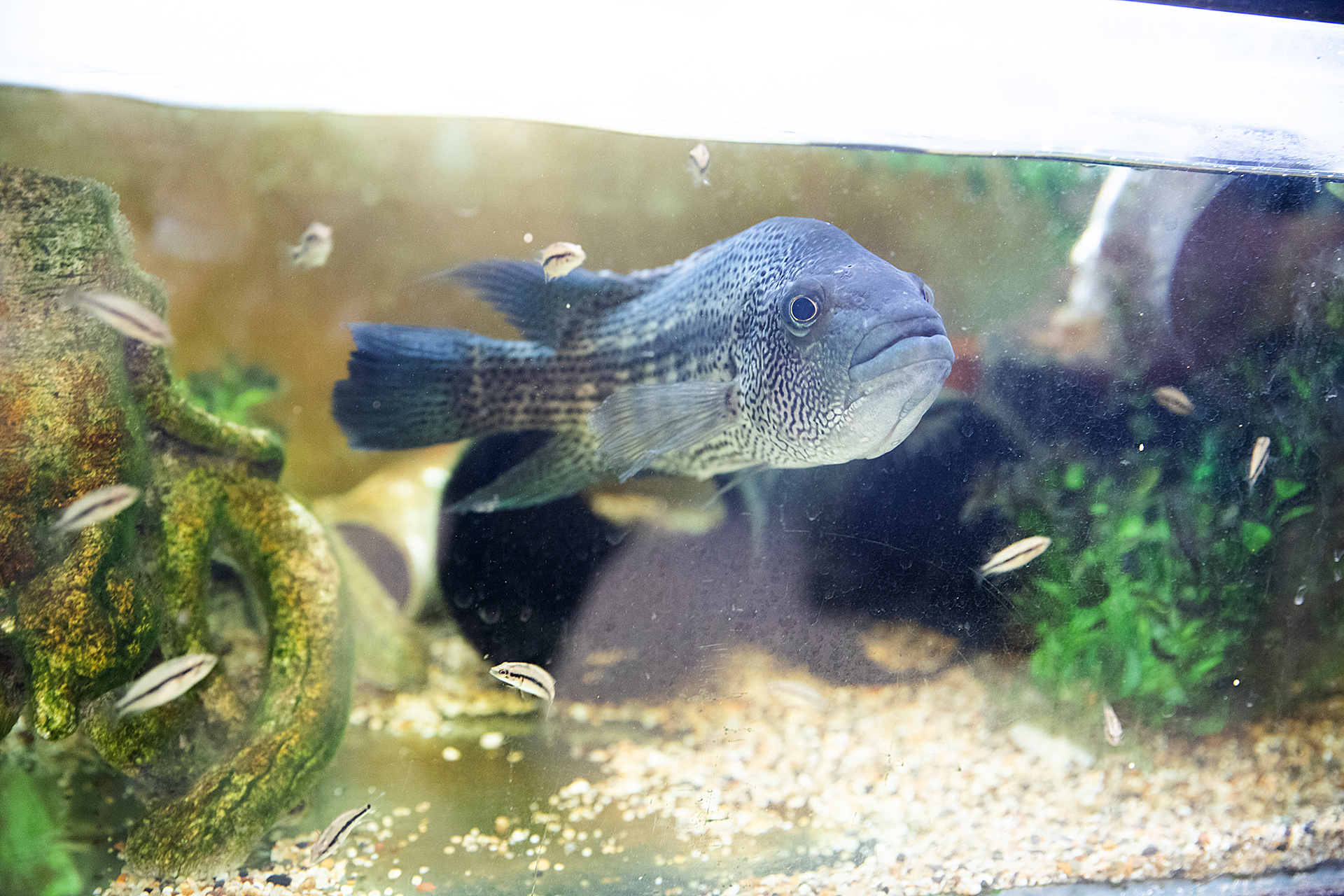
While pursuing his doctorate, Coleman became acquainted with Convict cichlids and began researching them in earnest.
He continued those studies as a postdoctoral fellow at the University of California, Berkeley.
After joining Sac State’s faculty in 2001, he launched the Fish Lab in a room in Humboldt Hall. The lab, which he helped refurbish, is open to the public, and Coleman enthusiastically encourages people to visit the lab in Humboldt 119 during regular business hours.
Coleman’s work is part of a broader field known as behavioral ecology.
Some of the lab research involves altering conditions within the fish tanks, including removing fish eggs and offspring or inserting plastic replicas of fish predators and observing the responses of the parents.
“You can take their babies from them. You can threaten them with models,” Coleman said. “We’re looking at how their environment affects the way that they parent.”
Each year, Coleman and his students travel to the Costa Rican rainforest to study cichlids in the wild. Among other things, they research how changes in weather patterns affect fish and their young.
More than 200 students have worked in Coleman’s lab over the years, and not all of them have been Biology majors.
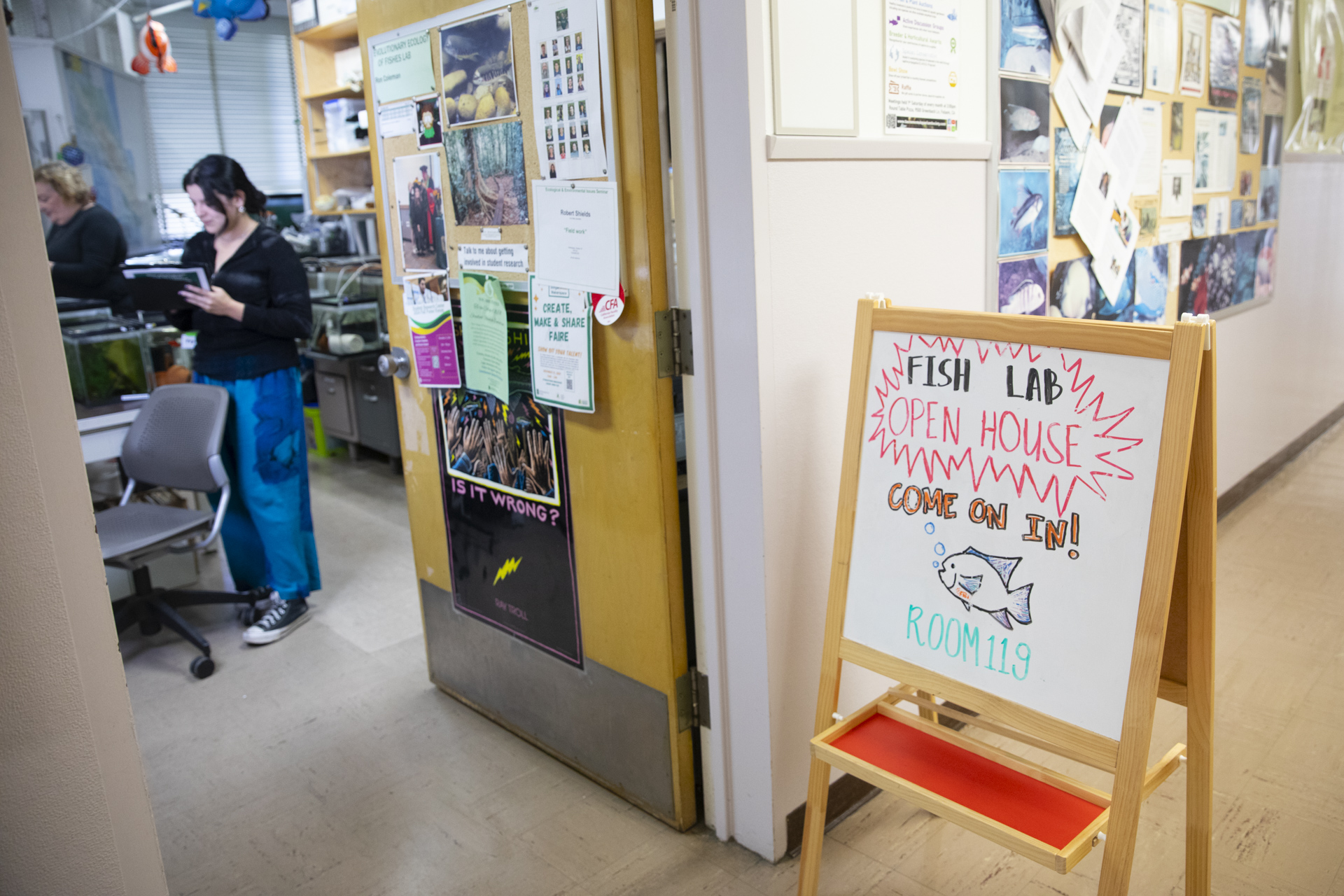
“I’ve had Engineering students, Computer Science students, students from lots of different fields,” he said. His Fish Lab students have become professors, doctors, dentists, fish and game specialists, and one became a college dean.
“That’s my main source of pride, seeing my students succeed,” Coleman said.
For Biology student Desiree Thomas, the Fish Lab is her touchstone on campus. She visits the lab five days a week, advancing her studies on fish shapes and sizes and interacting with other students.
“It’s very holistic,” Thomas said. “The fish, the community, the mentoring that I get – it’s very rewarding in so many ways.”
Coleman said students, faculty and even administrators enjoy the serenity of the lab.
“It’s very soothing,” he said. “We have people who come in just to relax and watch the fish.”
With their trained eyes, Coleman and his students know that life within the tanks is not always so peaceful.
“These fish are fighting every moment of their lives to keep their kids alive,” he said. “If they make a mistake, the consequences are severe and very rapid.
“It’s all fascinating. We still have a lot of questions to answer. The learning never ends.”
Take a look inside Coleman's fish lab
More Sac State Research and Innovation
Media Resources
Faculty/Staff Resources
Looking for a Faculty Expert?
Contact University Communications
(916) 217-8366
communications@csus.edu
